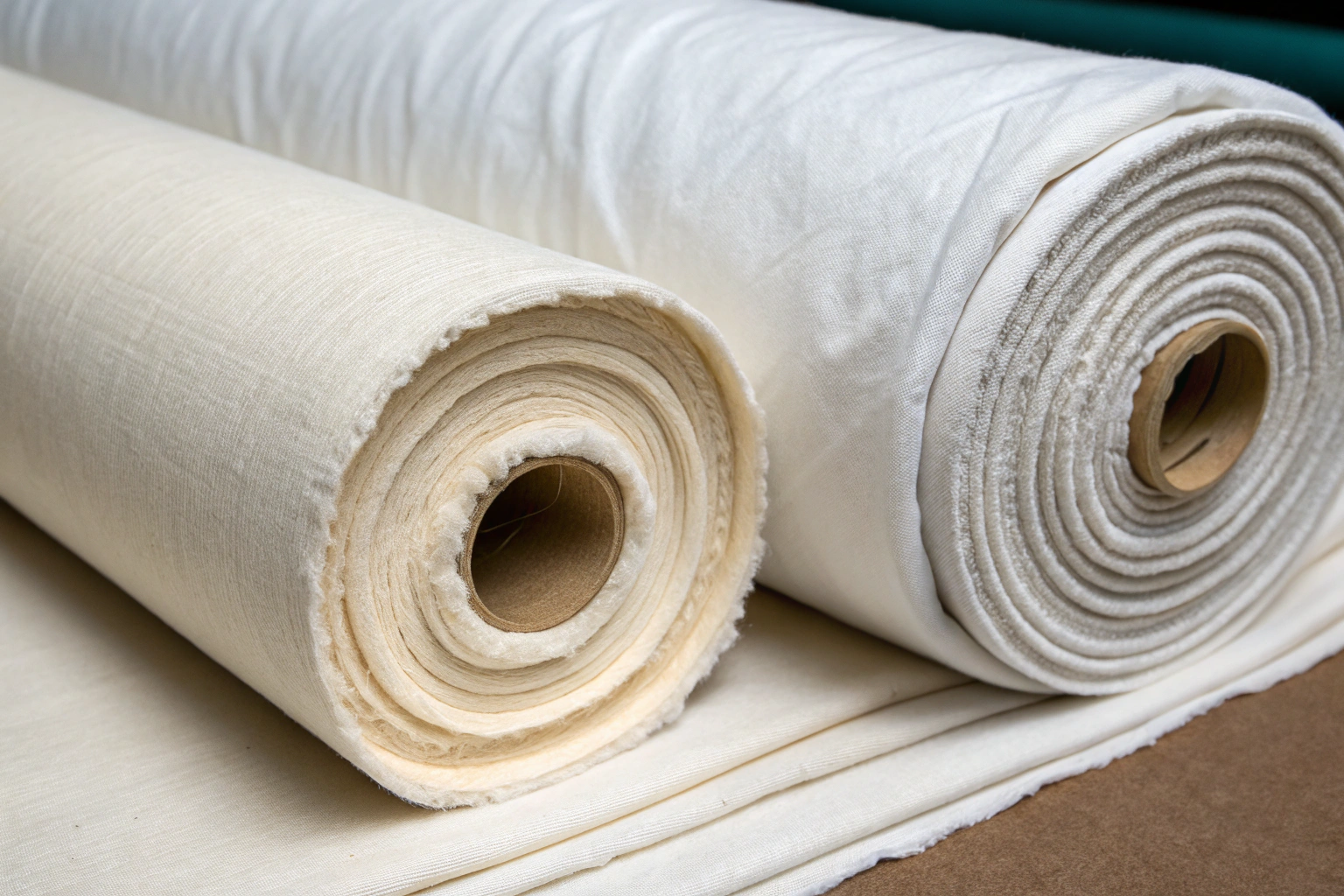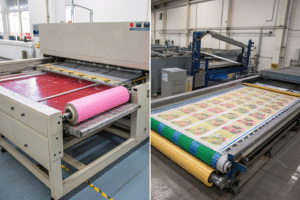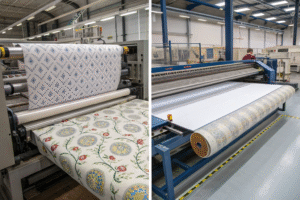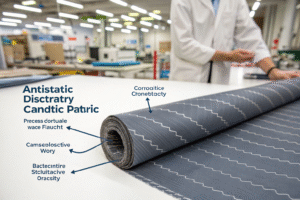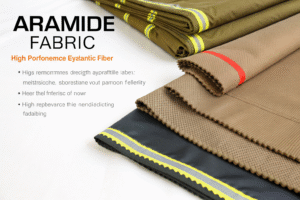When selecting fabrics for clothing, consumers often face a common question: should they choose cotton or polyester? These two fibers dominate the global textile market, but they meet different needs. Some people prioritize softness and natural comfort, while others prefer durability and easy care. To make an informed choice, it is essential to understand the fundamental differences between cotton and polyester fabrics.
Cotton is a natural fiber that emphasizes comfort and breathability, while polyester is a synthetic fiber that stands out for durability and quick-drying performance. By examining their origins, properties, and best applications, we can see why each fabric has unique advantages depending on the situation.
This article explores cotton and polyester step by step: where they come from, how they perform, and how to decide between them.
What Is Cotton Fabric?
Cotton comes from the seed hairs of the cotton plant, making it a renewable and biodegradable resource. Because of its cellulose-based structure, cotton allows excellent air circulation and provides natural softness. For centuries, it has been the backbone of comfortable, breathable clothing around the world.
In short, cotton is valued for its softness, absorbency, and natural feel.

Properties of Cotton
- Natural Origin: 100% plant-based and eco-friendly.
- Breathability: Encourages airflow, helping the body stay cool.
- Moisture Absorption: Holds up to 25% of its weight in water, making it effective in absorbing sweat.
- Comfort: Gentle on sensitive skin, ideal for baby clothing and undergarments.
- Maintenance: Prone to wrinkling, shrinking, and fading if not washed with care.
Because of these features, cotton is especially suitable for summer clothing, where staying cool is a priority (CottonWorks).
What Is Polyester Fabric?
Unlike cotton, polyester is entirely man-made. Developed in the 20th century, it is produced from petroleum-derived polymers. Its chemical structure makes it resistant to shrinking and wrinkling, which explains why it quickly gained popularity for both fashion and industrial use.
Polyester is prized for its durability, wrinkle resistance, and fast-drying ability.
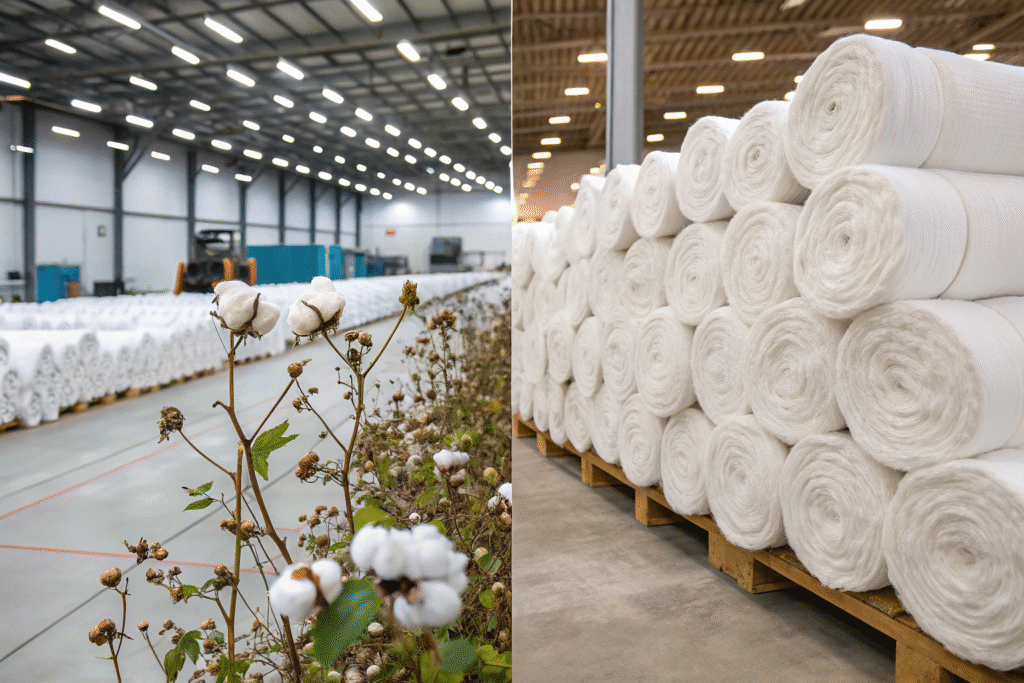
Properties of Polyester
- Synthetic Origin: Derived from polyethylene terephthalate (PET).
- Durability: Strong, abrasion-resistant, and shape-retentive.
- Moisture Resistance: Hydrophobic, meaning it repels water and dries rapidly.
- Low Maintenance: Easy to wash, wrinkle-resistant, and colorfast.
- Comfort: Lightweight but less breathable than cotton unless modified with special finishes.
Because of its resilience, polyester has become the go-to choice for sportswear and outdoor gear, where durability and moisture control are essential (Britannica).
How Do Cotton and Polyester Compare?
When placed side by side, cotton and polyester reveal complementary strengths. Cotton provides comfort and breathability, while polyester ensures durability and ease of care. This contrast explains why many modern garments combine both fibers in blended fabrics.
Cotton excels in comfort, whereas polyester excels in durability and maintenance.
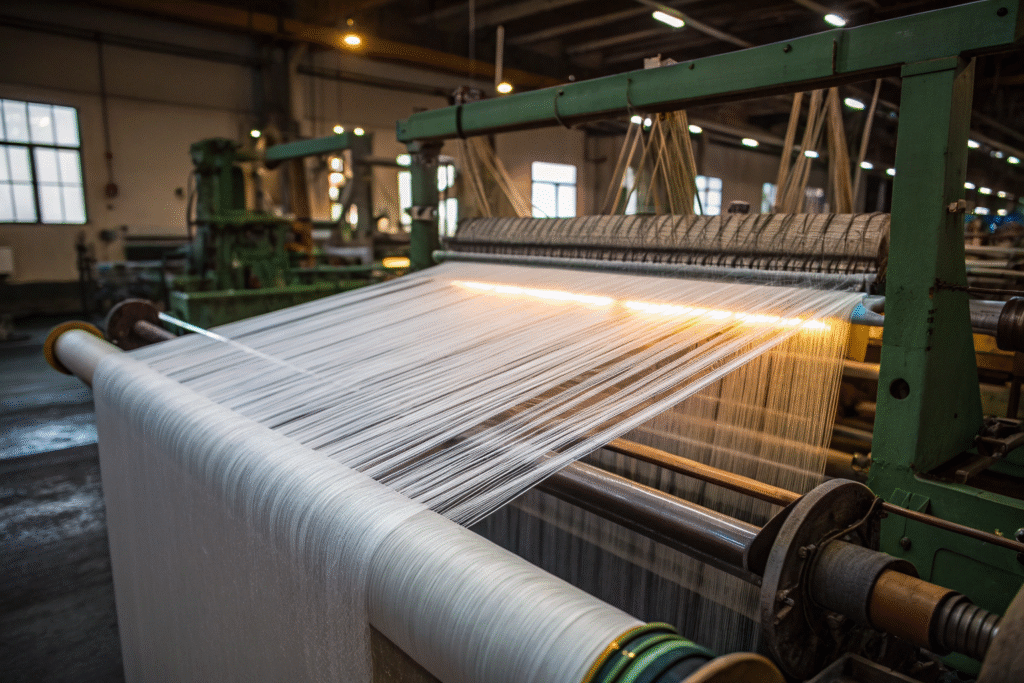
Key Differences
| Feature | Cotton 🌿 | Polyester 🧵 |
|---|---|---|
| Origin | Natural (plant-based) | Synthetic (petroleum-based) |
| Breathability | Highly breathable | Less breathable |
| Moisture Handling | Absorbs sweat, dries slowly | Repels moisture, dries fast |
| Durability | Soft but wrinkles/shrinks | Very durable, wrinkle-resistant |
| Comfort | Gentle on skin | Lightweight but less soft |
| Eco Impact | Biodegradable but water-intensive to grow | Non-biodegradable, recyclable from PET |
| Best Use | Casual wear, summer clothing, baby garments | Activewear, outdoor gear, wrinkle-free clothing |
When Should You Choose Cotton or Polyester?
The decision between cotton and polyester depends on context. If the goal is comfort in hot climates, cotton is usually superior. However, if durability and easy care are more important, polyester is often the better choice. In many cases, blends provide the most balanced solution.
Cotton is ideal for natural comfort, while polyester is designed for performance-driven needs.
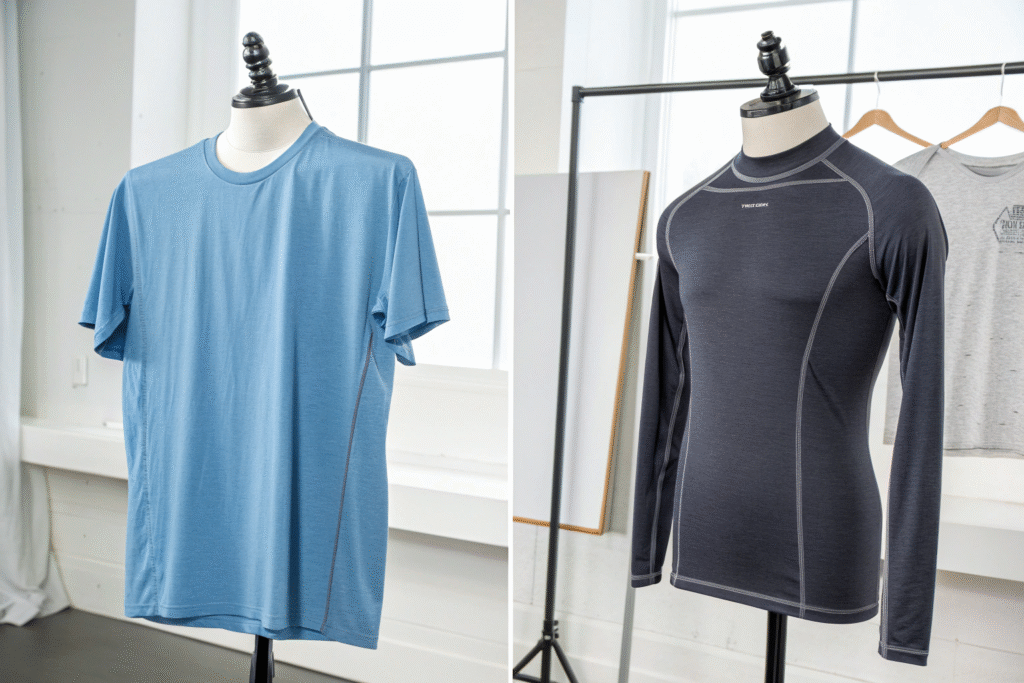
Choose Cotton When:
- Comfort and breathability are the top priorities.
- Clothing is intended for hot and humid conditions.
- Skin sensitivity requires natural, gentle fibers.
Choose Polyester When:
- Durability, wrinkle resistance, and shape retention are essential.
- Clothing will be used for sports or outdoor activities.
- Quick-drying performance is important for travel or high activity.
Blended fabrics combine the softness of cotton with the resilience of polyester, making them extremely popular for T-shirts, uniforms, and everyday wear (Sewport).
Conclusion
The essential difference between cotton and polyester lies in their origin and performance. Cotton, as a natural fiber, offers comfort, breathability, and skin-friendliness. Polyester, as a synthetic fiber, provides strength, wrinkle resistance, and quick-drying convenience. Cotton is best for everyday comfort and summer wear, while polyester is more suitable for activewear and situations requiring durability.
For buyers and fashion brands, blends of cotton and polyester often deliver the best of both worlds—softness with strength. At Shanghai Fumao, we supply pure cotton, pure polyester, and customized blends to meet diverse production needs. To explore fabric options for your next collection, contact our Business Director Elaine at elaine@fumaoclothing.com.

